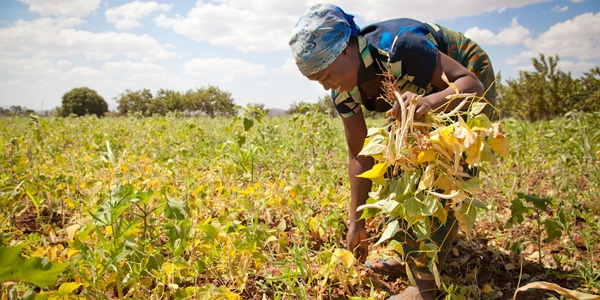News & Updates
The Open Data Revolution to Achieve Zero Hunger
15 November 2016

In today’s evolving global landscape we face complex challenges. Populations are growing, climates are changing and markets are often unstable.
As the world’s population grows to around 9 billion by 2050, global demand for food, feed and fibre is predicted to almost double. The number of people at risk of hunger is likely to increase from 881 million in 2005 to more than one billion.
Alongside these challenges, however, come huge opportunities. Open data is transforming the way we live our lives and interact with each other; from transporting information, to empowering citizens, enhancing education, strengthening government accountability, and improving access to healthcare. This emerging global data infrastructure coupled with innovative business models and international political will, has the potential to combat food insecurity.
The Global Open Data for Agriculture and Nutrition (GODAN) is an initiative seeking to support global efforts to make agricultural and nutritionally relevant data available, accessible, and usable for unrestricted use worldwide focusing on building high-level policy and public and private institutional support for open data.
GODAN have set out five steps for pursuing solution-focused open data initiatives for agriculture and nutrition:
- Engage with the growing open data community, including key problem owners and experts at GODAN, to identify the challenges that open data can help solve.
- Build open data strategies and projects with a focus on finding solutions to these agriculture and nutrition problems.
- Develop the infrastructure, assets and capacities for open data in relevant organisations and networks.
- Use open data and support users of relevant data
- Learn through ongoing evaluation, reflection and sharing to ensure we can all continue to improve our practice.
Jaime Adams, senior adviser to the US Department of Agriculture’s chief scientist, is responsible for managing the US Government’s involvement in the global open data initiative. She stated that data-based innovation could help in the form of: cheaper and more accessible insurance for small-scale farmers; mobile apps providing real-time weather and market data to farmers in a language they understand; and online land records that help women lay formal claim to the land they farm.
However, opening up the world’s agricultural statistics is not without challenges. Transferring information from reports into a searchable online format is rarely a priority for those who produce them and satellite data requires a vast amount of storage space. In addition, many governments around the world consider their data on agricultural production, consumption or storage as sensitive information and are therefore reluctant to share the data. Other countries simply do not have the financial resources or trained personnel to put information online.
There are a number of initiatives, in addition to the GODAN, seeking to address the current lack of open data:
- The U.S. Agency for International Development (USAID) and the United Nations Food and Agriculture Organization (FAO) have announced a $15 million programme to help developing countries in Africa, Asia and Latin America improve their capacity to track agricultural data.
- Additionally, the FAO is putting in place a series of initiatives to strengthen countries’ capacity as well as developing innovative survey tools, such as the Food Insecurity Experience Scale to monitor food insecurity worldwide, and AGRIS (Agriculture Integrated Survey) to monitor economic, social and environmental aspects of farming activities.
- The agency is also working on gathering and coordinating the information provided by countries to produce global and regional aggregates, all of which are available online through FAOSTAT, its statistical database on food, agriculture, fisheries, forestry, natural resources management and nutrition. The world’s largest and most comprehensive data resource of its kind, FAOSTAT provides free, open and easy access to over 3 million time-series and cross-sectional data of 245 countries and territories.
Join the discussion on lessons learned from recent drought crisis in Sub-Saharan East Africa at the upcoming 2nd annual Aid & Development Africa Summit 2017 (28 February-1 March) held in Nairobi, Kenya. The session will examine disaster response activities to recent drought emergency in the region, identifying new best practice, challenges, possible solutions and what can be done better next time.
For more information, please visit: http://africa.aidforum.org/agenda
IMAGE SOURCE: World Food Programme